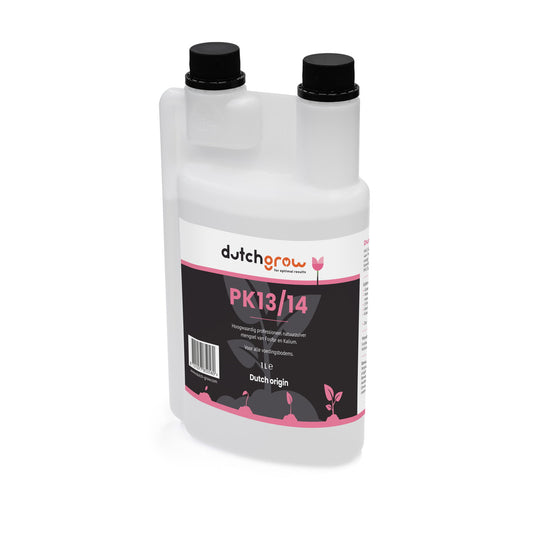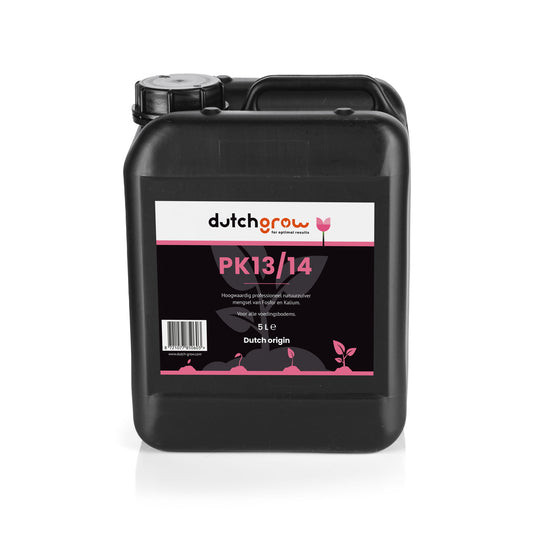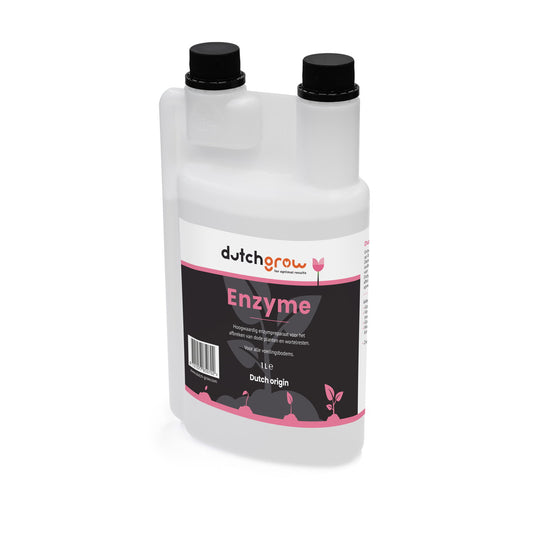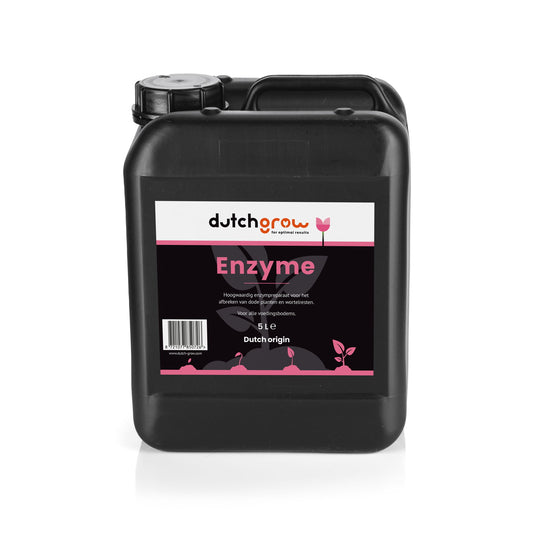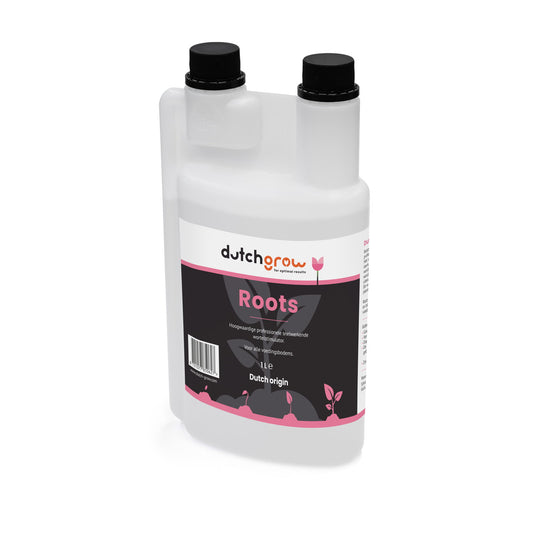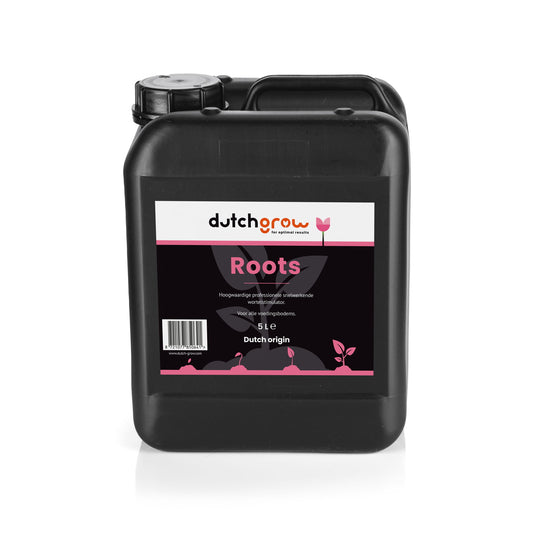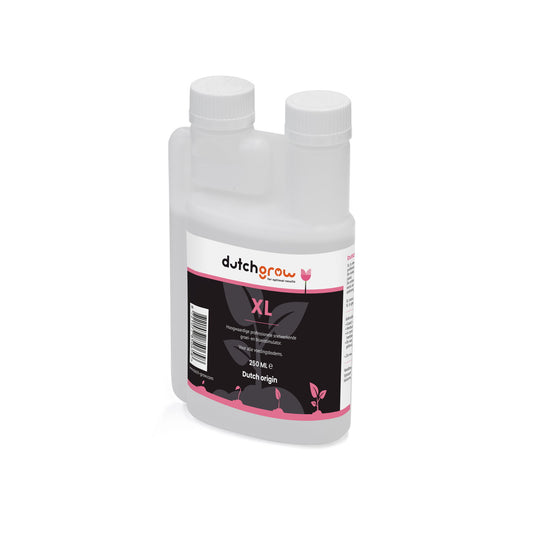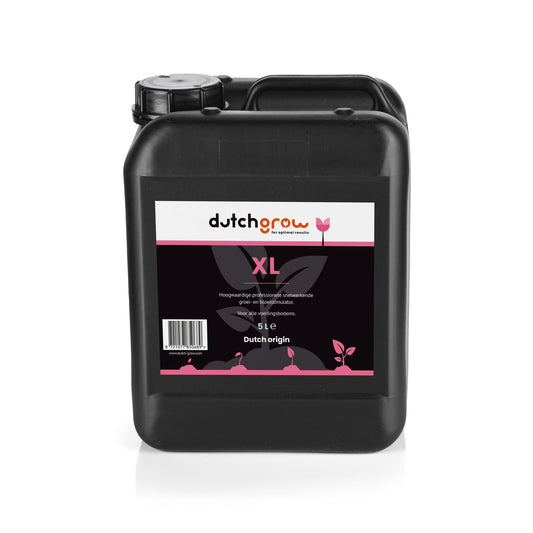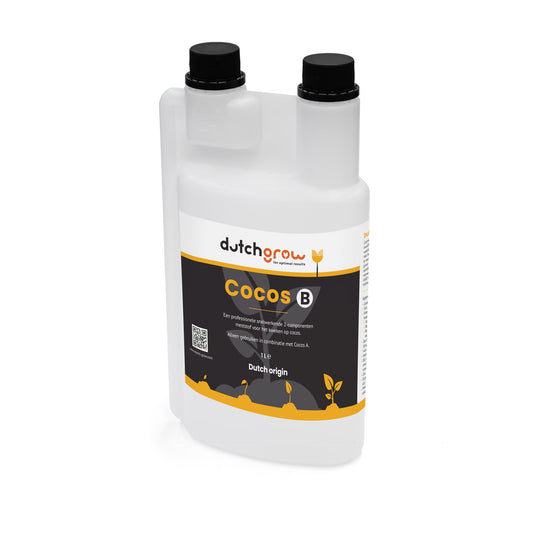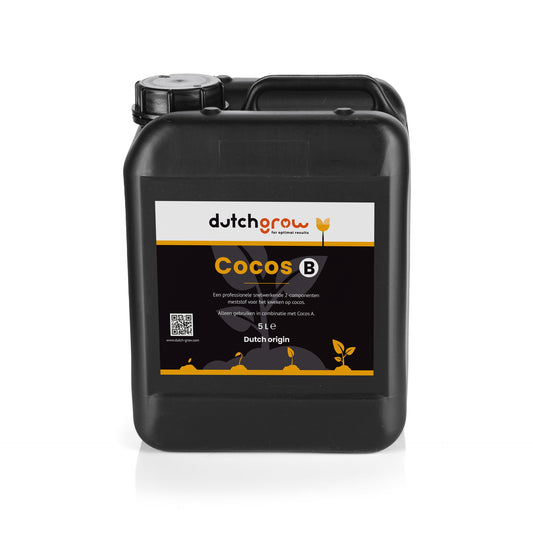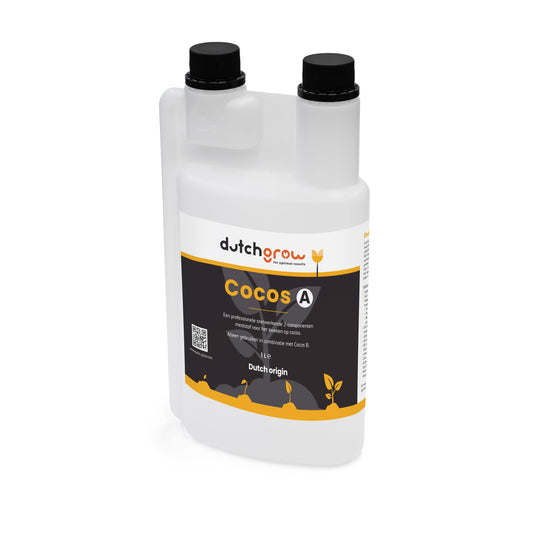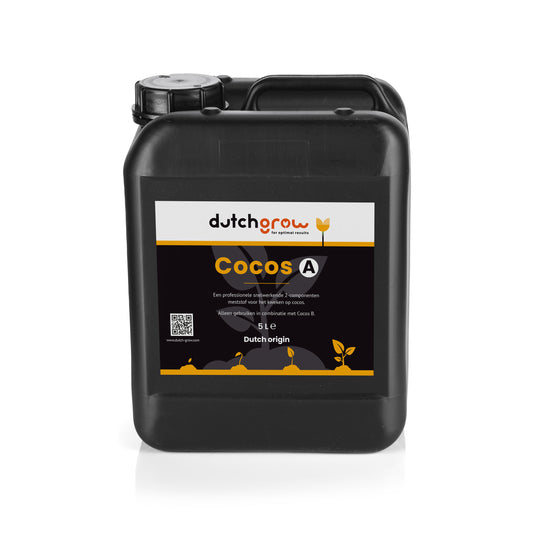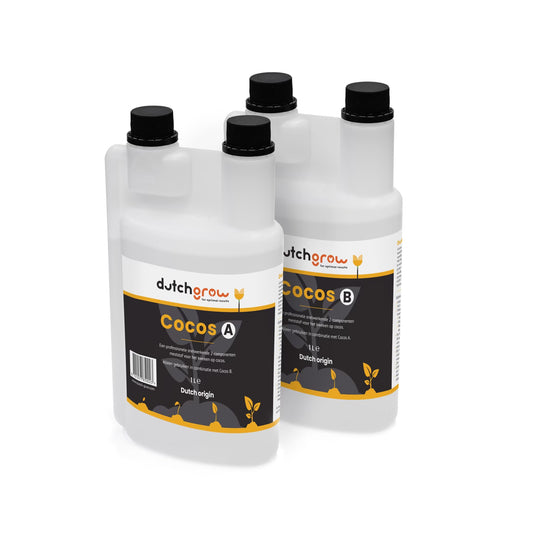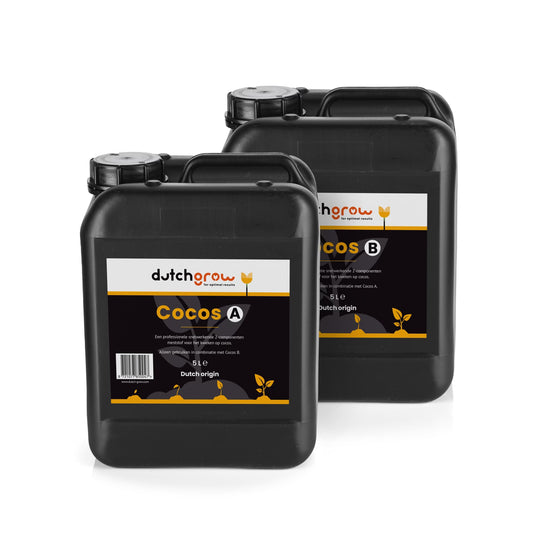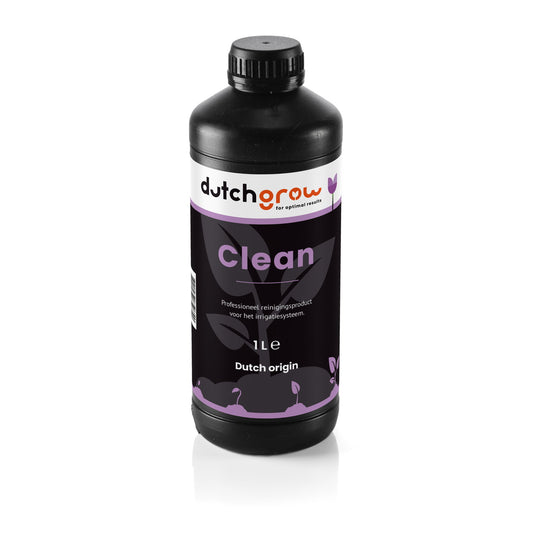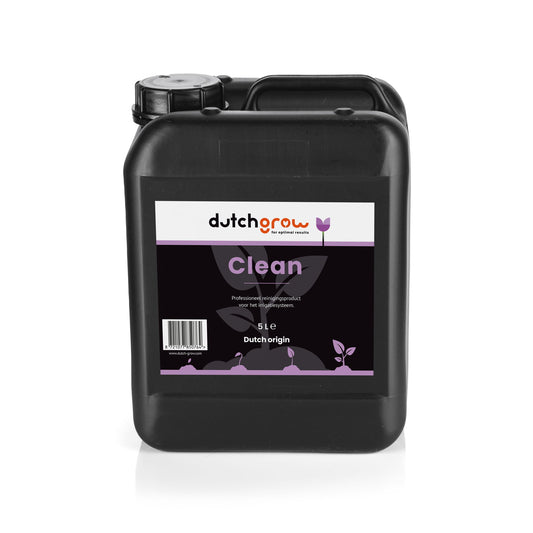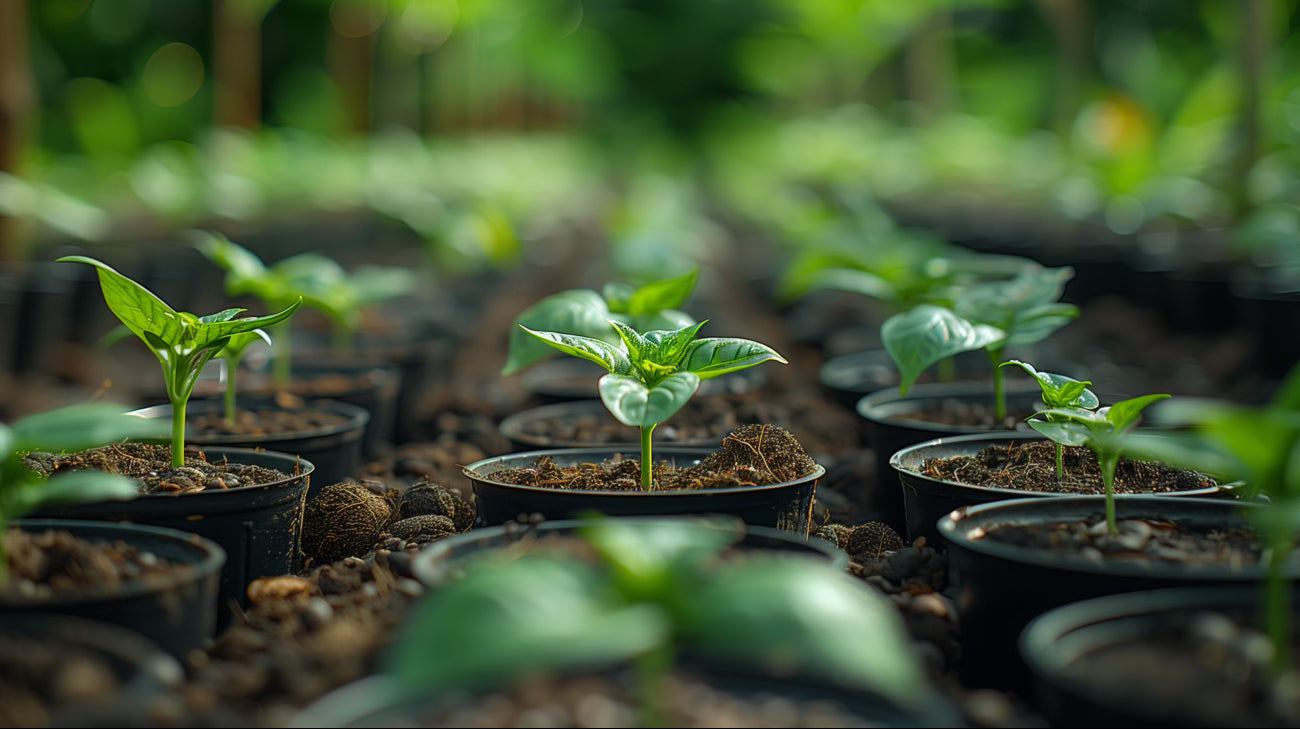
Optimal Growing with Coconut Substrate
Choosing coco coir as a growing medium is a decision that's gaining popularity among both hobbyists and professional growers. This trend can be attributed to the unique properties of coco coir, making it an excellent choice for a wide range of plants. In this article, we'll delve deeper into the world of growing with coco coir, highlighting the advantages and disadvantages, offering practical advice for its optimal use, and paying special attention to the integration of DutchGrow products into the growing process. The aim is to provide a balanced and informative perspective accessible to beginners and valuable to experienced growers.
The Choice for Coco Coir
The question of why one might choose coco coir over other mediums is multifaceted. Coco coir, derived from the hairy outer shell of coconuts, is lauded for its sustainability, water retention capacity, and air permeability. These properties make it an ideal environment for root growth and plant development. An added advantage is that coco coir is a renewable, environmentally responsible source, aligning with the growing demand for sustainable cultivation methods.
When Coco Coir is Preferred
Coco coir is particularly popular for growing fast-growing plants, such as certain vegetables, flowers, and herbs. It's also an excellent choice for hydroponic systems, where control over nutrients and water management is central.
Challenges and Opportunities of Coco Coir
However, like any growing medium, using coco coir comes with its challenges and opportunities. One of the biggest challenges is the initial low nutrient value of the substrate, meaning the grower is responsible for accurately managing the nutrients. However, this also presents an opportunity, as it allows growers to fully customize the nutritional conditions to the specific needs of their plants, potentially leading to optimal growth and flowering.
Finding the right balance in watering and fertilization is crucial, given coco coir's high water retention and air permeability. An effective water and nutrient strategy requires attention and knowledge, especially considering that over- or under-fertilization can severely harm plant health.
Advantages and Disadvantages: An Overview
Advantages:
Sustainable and Renewable: Coco coir is a by-product of the coconut industry, making its use contribute to waste reduction and promoting more sustainable agricultural practices.
Excellent Water Retention and Drainage: The balance between holding moisture and preventing waterlogging promotes healthy root development.
Natural Resistance to Diseases: The structure of coco coir offers fewer opportunities for the development of soil-borne diseases.
Disadvantages:
Requires Careful Nutrient Management: Due to its low initial nutrient value, growers must carefully manage the nutritional status of their plants.
May Be Initially More Expensive: The initial investment in coco coir and associated nutrients can be higher compared to some other growing media.
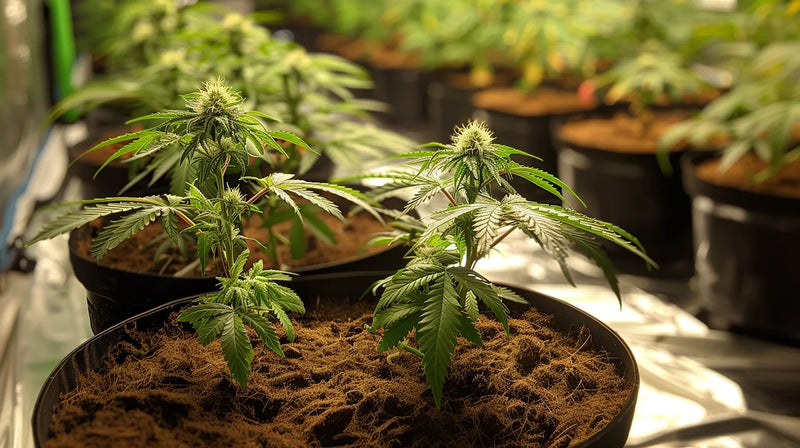
Where Coco Coir is Widely Used
Coco coir is especially popular in hydroponics and in the cultivation of fast-growing plants, including:
- Vegetables and Fruits: Growers of vegetables such as tomatoes, peppers, and cucumbers, as well as fruits like strawberries, use coco coir for the improved water and nutrient management capabilities it offers. This leads to higher yields and healthier plants.
- Orchids and Other Ornamental Plants: Coco coir is also widely used in the cultivation of orchids and other ornamental plants. It provides a perfect environment for root growth and moisture retention, which is crucial for these often delicate plants.
- Commercial Nurseries and Horticulture: In the commercial sector, coco coir is applied in nurseries and in horticulture for the production of both ornamental and consumable crops. Its sustainability and efficiency in water and nutrient management make it an economically wise choice for large-scale operations.
- Urban and Vertical Farming: In urban and vertical farming, coco coir is valued for its lightweight property, making it an ideal choice for rooftop gardens and hydroponic systems in urban environments.
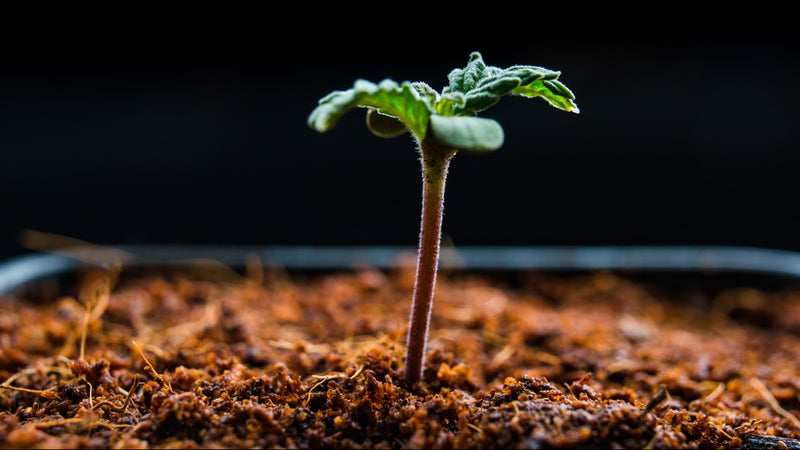
Practical Advice for Using Coco Coir
Effective cultivation in coco coir requires some knowledge and adjustment, especially for those accustomed to more traditional growing media like soil. The unique properties of coco coir offer both benefits and challenges, but with the right approach and the use of specialized products like those from DutchGrow, the potential of this medium can be fully utilized. Here are practical tips for using coco coir and integrating DutchGrow products throughout the growth process.
Initial Phase and Rooting
At the start of the growth process, it's essential to lay a strong foundation for your plants. Using a root stimulator like DutchGrow Roots can be invaluable. This product is designed to stimulate root growth and increase plant resistance, especially in young, repotted, or pruned plants. Applying DutchGrow Roots helps prevent stress in plants and supports rapid and healthy development of the root system, a crucial factor in growing in coco coir.
Nutrient Management
Since coco coir contains little to no nutrients, adding the right nutrients from the start is crucial. DutchGrow Coco A & B fertilizers are specially formulated for use with coco coir and provide balanced nutrition throughout all phases of plant growth. It's important to regularly measure EC values and adjust the dosage of these nutrients accordingly. A high EC value can lead to nutrient burn, while a low value can hinder growth.
Watering Strategies
The water retention capacity of coco coir is both a blessing and a challenge. Finding a balance between watering enough to keep the plants hydrated and avoiding overwatering, which can lead to oxygen deficiency at the roots and increase the risk of root rot, is important. Regularly checking the substrate's moisture and adjusting the irrigation schedule based on the plants' needs is essential. DutchGrow Clean can be used to keep the irrigation system free from clogs and buildup of salts, ensuring efficient water and nutrient delivery.
During the Growth and Flowering Phases
As the plants enter the growth and flowering phases, specific nutritional needs become more critical. Using DutchGrow Enzyme helps break down dead plant residues in the substrate, creating a healthier root environment and improving nutrient uptake. For the flowering phase, adding DutchGrow XL and PK 13/14 can significantly improve the development of flowers and fruits. These products contain flowering stimulants and essential minerals that increase the yield and quality of the flowers.
Ongoing Maintenance and Adjustments
Practical Advice for Using Coco Coir
Successful cultivation in coco coir requires ongoing attention and adjustments. Regularly checking pH and EC values, adjusting nutrients, and watering schedules based on the growth stages and health of the plants, and using DutchGrow products to address specific needs are all essential parts of the process.
By following these practical tips and deploying the right DutchGrow products at the right times, growers can take full advantage of the benefits of coco coir. This leads not only to healthier plant growth and higher yields but also contributes to a more sustainable approach to plant cultivation. Integrating these tips into your cultivation strategy will help you overcome the unique challenges of growing in coco coir and realize the full potential of your plants.
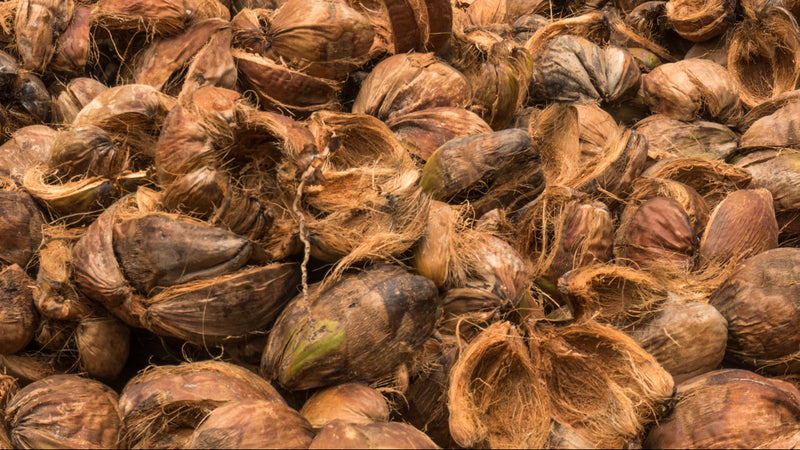
Coco Coir for Sustainable Agriculture
Coco coir stands at the forefront of a revolution in sustainable agriculture, with its unique balance of benefits making it an attractive choice for a wide range of growers. The integration of specialized products, such as those from DutchGrow, can further unlock the potential of this medium, leading to healthier plants and more abundant harvests. By addressing the challenges and embracing the advantages, growers can pave the way for more sustainable and productive growing practices.
Related Products
-
DutchGrow PK13/14
Regular price From €5,90 EURRegular priceUnit price / per -
DutchGrow Enzyme
Regular price From €6,70 EURRegular priceUnit price / per -
DutchGrow Roots
Regular price From €11,50 EURRegular priceUnit price / per -
DutchGrow XL
Regular price From €12,10 EURRegular priceUnit price / per -
DutchGrow Cocos Starter Kit Mini
Regular price €24,60 EURRegular priceUnit price / per€30,20 EURSale price €24,60 EURSale -
DutchGrow Cocos B 2-component fertilizer
Regular price From €5,20 EURRegular priceUnit price / per -
DutchGrow Cocos Starter Kit
Regular price €47,50 EURRegular priceUnit price / per€54,40 EURSale price €47,50 EURSale -
DutchGrow Cocos A 2-component fertilizer
Regular price From €5,10 EURRegular priceUnit price / per -
DutchGrow Cocos A+B 2-component fertilizer
Regular price From €10,30 EURRegular priceUnit price / per -
DutchGrow Clean
Regular price From €11,20 EURRegular priceUnit price / per
